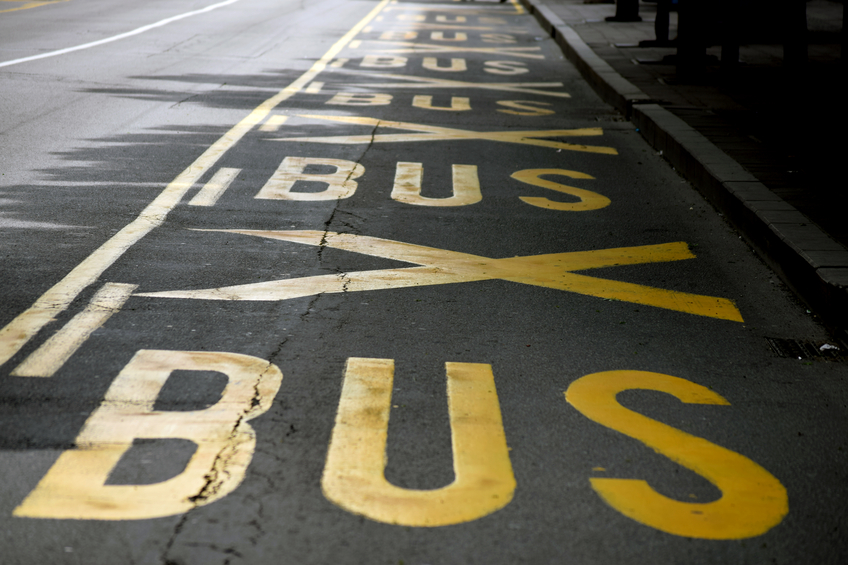Yukon Traffic 30 PDH Discount Package
Road Diet Informational Guide (C04-061)
Roundabout Planning and Operation (C05-011)
Traffic Bottlenecks Operational Improvements (C06-018)
Traffic Control Concepts for Urban and Suburban Streets (C07-004)

This online PDH course primarily covers engineering countermeasures for horizontal curve safety that are relatively low-cost, such as signage and pavement markings.
This course is intended to provide information specifically relating to lower volume two-lane roads and the agencies that manage them. It will help transportation agencies and their crews understand the available countermeasures and how to select and apply them.
This 8 PDH online course is applicable to traffic engineers, local transport agencies, design professionals and personnel who wish to understand the available horizontal curve safety countermeasures and how to select and apply them.
This P.Eng. continuing education course is intended to provide you with the following specific knowledge and skills:
- Learning about the two components of safety improvements
- Familiarization with the markings, signs, and pavement countermeasures that are used to improve horizontal curve safety
- Addressing the importance of roadside conditions and improvement opportunities
- Familiarization with the possible means of improving intersections
Upon successful completion of the quiz, print your Certificate of Completion instantly. (Note: if you are paying by check or money order, you will be able to print it after we receive your payment.) For your convenience, we will also email it to you. Please note that you can log in to your account at any time to access and print your Certificate of Completion.

This online engineering PDH course provides information on the design and post-implementation evaluation of Road Diets, and presents the decision-making process that helps practitioners determine whether Road Diets are a good fit for a certain corridor.
Four-lane undivided highways have a history of relatively high crash rates as traffic volumes increase and as the inside lane is shared by higher speed through traffic and left-turning vehicles. One option for addressing this safety concern is a “Road Diet.” A Road Diet involves converting an existing four-lane undivided roadway segment to a three-lane segment consisting of two through lanes and a center two-way left-turn lane (TWLTL). The reduction of lanes allows the roadway cross section to be reallocated for other uses such as bike lanes, pedestrian refuge islands, transit stops, or parking.
A Road Diet improves safety by including a protected left-turn lane for mid-block left-turning motorists, reducing crossing distance for pedestrians, and reducing travel speeds that decrease crash severity. Additionally, the Road Diet provides an opportunity to allocate excess roadway width to other purposes, including bicycle lanes, on-street parking, or transit stops.
This 4 PDH online course is applicable to transportation engineers who are interested in improving safety and reducing highway fatalities through the use of proven safety countermeasures including Road Diets.
This P.Eng. continuing education course is intended to provide you with the following specific knowledge and skills:
- Familiarizing with the basics of Road Diets
- Understanding the multidimensional benefits of Road Diets
- Learning about the geometric and operational designs of Road Diets
- Gaining a general overview on how to conduct a safety and an operational analysis to determine if the Road Diet is effective
- Exploring various case studies on feasibility determination decision-making
Upon successful completion of the quiz, print your Certificate of Completion instantly. (Note: if you are paying by check or money order, you will be able to print it after we receive your payment.) For your convenience, we will also email it to you. Please note that you can log in to your account at any time to access and print your Certificate of Completion.

This online engineering PDH course presents the factors that lead up to the decision to construct a roundabout with an approximate configuration at a specific location, preceding the detailed analysis and design of a roundabout. By confirming that there is good reason to believe that roundabout construction is feasible and that a roundabout offers a sensible method of accommodating the traffic demand, these planning activities make unnecessary the expenditure of effort required subsequently.
This course also presents methods for analyzing the operation of an existing or planned roundabout. These methods allow a transportation analyst to assess the operational performance of a facility, given information about the usage of the facility and its geometric design elements. An operational analysis produces two kinds of estimates: (1) the capacity of a facility, i.e., the ability of the facility to accommodate various streams of users, and (2) the level of performance, often measured in terms of one or more measures of effectiveness, such as delay and queues.
This 5 PDH online course is applicable to traffic engineers, transportation planners, conceptual and detailed designers, and other technical professionals who are involved in the planning and operation of roundabouts.
This P.Eng. continuing education course is intended to provide you with the following specific knowledge and skills:
- Considering the various constraints for constructing a roundabout
- Determining a preliminary lane configuration and selecting a roundabout category based on capacity requirements
- Performing the analysis appropriate to the roundabout selection category
- Determining the space requirements and feasibility
- Understanding the traffic operations at roundabouts
- Obtaining data required to evaluate the performance of a roundabout
- Estimating the capacity of the various roundabout configurations
- Applying measures of effectiveness determine the performance of a roundabout and estimating these measures
- Familiarizing with the different computer software packages available to implement the capacity and performance analysis procedures
In this professional engineering CEU course, you need to review Chapter 4, "Planning" and Chapter 5, "Operation", of the Federal Highway Administration Publication FHWA-RD-00-067, "Understanding Roundabouts".
Upon successful completion of the quiz, print your Certificate of Completion instantly. (Note: if you are paying by check or money order, you will be able to print it after we receive your payment.) For your convenience, we will also email it to you. Please note that you can log in to your account at any time to access and print your Certificate of Completion.

This online engineering PDH course describes bottlenecks and explores near-term operational and low-cost construction opportunities to correct them.
Delays due to traffic congestion seem like an unavoidable, frustrating fact of life. Or are they—unavoidable, that is? This course focuses on traffic congestion caused by bottlenecks—which are specific locations on the highway system where the physical layout of the roadway routinely cannot process the traffic that wants to use it and results in localized, recurring congestion.
By focusing on relieving localized, recurring congestion at bottlenecks, this primer can help agencies identify the right fix for a particular bottleneck. What’s more, the right fix for a localized, recurring bottleneck is usually spot-specific, more effective, less expensive, and faster to implement than building a new facility.
This 6 PDH online course is applicable to traffic engineers and planners, conceptual and detail designers, and other technical professionals who are interested in gaining a better understanding in traffic bottlenecks operational improvements.
This P.Eng. continuing education course is intended to provide you with the following specific knowledge and skills:
- Understanding bottlenecks and congestion
- Learning about the different strategies of resolving congestion
- Knowing how to structure a localized bottleneck program
- Identifying, assessing and addressing bottlenecks
- Incorporating quick-fix bottleneck solutions into the Congestion Initiative
- Understanding how agencies are dealing with bottlenecks (case studies)
Upon successful completion of the quiz, print your Certificate of Completion instantly. (Note: if you are paying by check or money order, you will be able to print it after we receive your payment.) For your convenience, we will also email it to you. Please note that you can log in to your account at any time to access and print your Certificate of Completion.

This online engineering PDH course discusses traffic control concepts for urban and suburban streets. In planning and designing a traffic signal control system, one must first understand the applicable operational concepts related to signalized intersection control and signal-related special control. A number of commonly used proprietary traffic systems and simulations are discussed in this chapter. These discussions provide illustrations of the technology.
This 7 PDH online course is applicable to transportation planners, traffic engineers, agency personnel as well as design and construction personnel involved with the development, review, approval, implementation, and assessment of traffic control planning, designs and implementation.
This P.Eng. continuing education course is intended to provide you with the following specific knowledge and skills:
- Understanding the various control variables
- Learning the sampling, filtering and smoothing techniques
- Knowledge of traffic signal timing parameters and signal phasing
- Dealing with isolated intersections
- Understanding arterial and network control and other special controls
- Understanding the benefits and measures of effectiveness
In this professional engineering CEU course, you need to review Chapter 3, "Traffic Control Concepts - Urban and Suburban Streets" of the Federal Highway Administration Publication, FHWA-HOP-06-006, "Traffic Control Systems Handbook".
Upon successful completion of the quiz, print your Certificate of Completion instantly. (Note: if you are paying by check or money order, you will be able to print it after we receive your payment.) For your convenience, we will also email it to you. Please note that you can log in to your account at any time to access and print your Certificate of Completion.